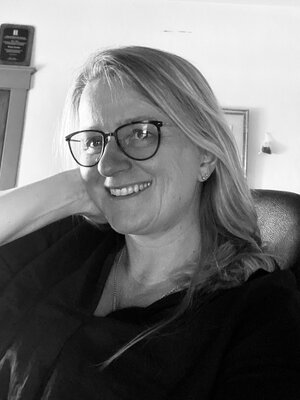
Helga Varden is a Professor in the departments of Philosophy and Gender & Women's Studies at the University of Illinois, Urbana-Champaign. She is also an affiliate faculty of the European Union Center.
What is the focus of your current work and/or subject of your current research?
The public legal and political institutions—the social contracts—of many liberal democracies today are marked by deep, seemingly intractable problems of systemic injustice that track long histories of intersectional violent oppression. These institutions are supposed to enable us to interact as free and equal citizens, but their actual practices fall very short of these ideals. Without exception, they condone, facilitate, and even participate in much wrongdoing against segments of their populations—wrongdoing that in a profound sense is not rational. In her analysis of totalitarianism, Hannah Arendt concludes that we need a new principle to govern our thinking about peaceful, flourishing co-existence on the planet. I'm currently working on a new book--tentatively called Transforming Our Social Contracts--in which I propose that Kant’s philosophy provides us with the principle we need—each person’s right to freedom—but that we must take up all his relevant ideas, right his wrongs, and develop his proposals further. Transforming Our Social Contracts aims to show what it looks like when we look our predecessors squarely and truthfully in the eyes and then try to transform their theories so that they can help us transform our actual societies and institutions. In this way, I hope to show that despite the many shortcomings and failures of the existing liberal theories and philosophical practices, freedom, human dignity, and shared, accountable public governance are still ideals worth working toward by developing the tools these legal-political thinkers left us.
What classes do you teach? What are some of the topics of those classes?
I regularly teach PHIL 107 ("Introduction to Political Philosophy"), PPHIL 421 ("Ethical Theories"), and PHIL 436 ("Philosophy of Law and State"). Sometimes I also teach more specialized courses on feminist philosophy, the philosophy of sex and love, race, Kant, Hannah Arendt, or specific topics in the history of political philosophy. In these courses, we cover topics ranging from why we need legal-poltiical institutions, human nature, (political) violence and oppression, redistributive justice, and problems of (political) evil to cultural differences, sex work, happiness, rights and duties, gender identity, and sexual orientation.
Do you have any recent awards, honors, or publications that you would like to highlight?
Fall 2020: * Associate appointment in the UIUC Center for Advanced Studies (CAS) for AY 2021-22* The UIUC 2020 Campus Distinguished Promotion Award* Wengert Excellence in Undergraduate Teaching Award
Is there any additional information or advice you'd like to share?
I currently believe that academic philosophers should read extensively works--eg. novels, speeches, reflections--written by women, POC, LGBTQIA+, especially those written prior to these groups being admitted into academia. I believe this step is necessary to become able to describe the history of philosophy more accurately and to give due voice to those who came before us and who made much of what is currently good possible. I also believe such efforts are important to empower students who are breaking boundaries by coming to our university. Telling the history of philosophy more accurately in these ways provide these students with a sense of belonging;. It can help them see their place in history more clearly, namely as standing on the shoulders of moral giants who fought hard to make their inclusion possible. I also believe that such efforts will improve our ability to do our job (research, teaching, and service) better. I believe such efforts can help to transform our profession by making it more diverse and support wider societal efforts at making the world more just.